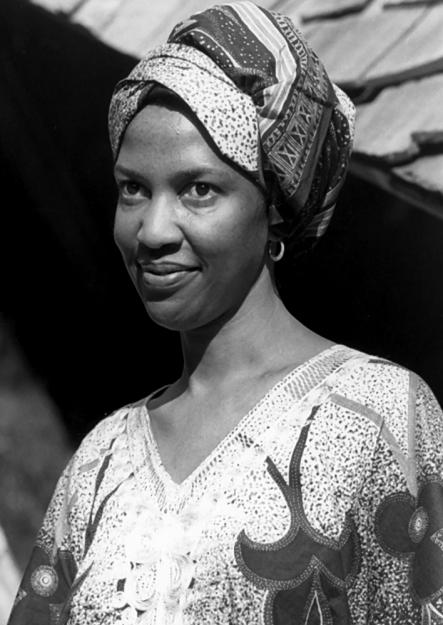Twenty-five years ago, the first and only African-American Franciscan Sister of Perpetual Adoration passed away. This year, Sr. Thea Bowman’s fellow nuns in La Crosse, former students, and friends are remembering a woman who fought for civil rights and used music to enrich her faith.
For Sr. Thea Bowman, being black in the Church and in society meant being an educator, a preacher, a scholar, a singer, a woman devoted to God…all while being charming and incredibly charismatic.
Sr. Thea was born a Protestant in Mississippi in 1937, the granddaughter of slaves. She boldly told her parents at age 12 that she wanted to convert to Catholicism.
At 15, she moved north to La Crosse to attend St. Rose Convent and study at what is known today as Viterbo University.
As a Franciscan Sister of Perpetual Adoration, she dedicated her life to Civil Rights. She worked to empower the black community, while educating others about African-Americans’ history and experience.
“What does it mean to be black and Catholic?,” asked Sr. Thea. “It means that I bring myself, my black self. All that I am. All that I have. All that I hope to become. I bring my whole history, my traditions, my experience, my culture, my African-American song and dance and gesture and movement and teaching and preaching and healing and responsibility as gift to the church.”
Sr. Thea brought songs to the Catholic Church that were engrained in her roots. She helped create the first hymnal that included gospel music. These songs were more than praise; she sang to get her point across.
In the late 1950s, Sr. Thea began teaching at a Catholic elementary school in La Crosse, a rare position for an African-American woman at that time. She spent years moving around the world and returned to La Crosse in the early seventies to chair the English Department at Viterbo.
Dr. Deborah Pembleton was a former student of Sr. Thea’s in Mississippi during the late sixties and is now a professor in Minnesota. She and her friends were inspired by the nun from their hometown to leave their small community. Pembleton says every time Sr. Thea visited her school, her classmates felt empowered.
“We were given strict instructions by the sisters, of course, to be on our best behavior when she came. When she came, I wouldn’t necessarily say she was on her best behavior,” laughs Pembleton. “She would be rollicking with laughter. Her whole body would embrace the music. Her whole body would embrace education and learning and she would just be this glowing light for us.”
Not only did Sr. Thea work to improve life for African-Americans in the Catholic Church, but she brought people of all cultures together.
Sr. Thea Bowman died of cancer in 1990 at age 52.
Many people will say she was a saint, but she’s not an official one in the eyes of the Catholic Church. For years, there’s been casual chatter about canonizing Sr. Thea, but no group has officially pursued the idea.
Thanks to the Franciscan Sisters of Perpetual Adoration and the University of Mississippi’s Center for the Study of Southern Culture for the archival audio. See more on Sr. Thea in Are You Walkin’ With Me? Sister Thea Bowman, a documentary produced by the University of Mississippi’s Center for the Study of Southern Culture











